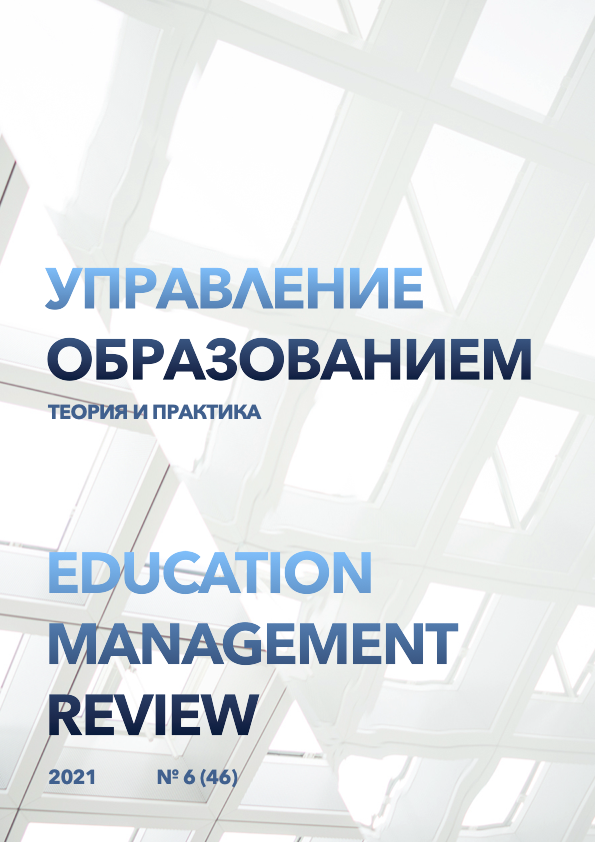Formation of the principles of education in Islamic countries
DOI:
https://doi.org/10.25726/h8240-0564-7801-oKeywords:
geographical education, research, education system, features, programsAbstract
Educational programs and textbooks of each country of the Arab world are developed taking into account national, ethnic, religious, historical, geographical, political, socio-economic and other features. However, due to the introduction of innovative technologies in education and the development of the Internet, educational systems in different countries need modernization. Thus, in the modern world, the formation of a global education system is taking place, into which national educational systems are integrated. Geographical education in Syria and other Arab countries, in particular in the Arab Republic of Egypt and the Kingdom of Saudi Arabia, which were selected for comparative analysis as one of the leading countries in terms of education, has a positive experience of in-depth study of the geography of their native country, education of citizenship and patriotism, development of practical skills necessary in life situations for schoolchildren. At the same time, the problems of school geographical education in Syria were the subject of only one study, which was conducted more than a quarter of a century ago. The absence of candidate and doctoral dissertations devoted to the development of school geographical education in Egypt and Saudi Arabia also indicates insufficient knowledge of the problem.
References
Anisimova, A. N., & Efremova, Y. I. (2022). Digital Transformation of Vocational Education: Challenges of Modern Society. Lecture Notes in Networks and Systems, 304, 773–781. https://doi.org/10.1007/978-3-030-83175-2_95
Breckel, A., Pietron, J., Juhnke, K., Sihler, F., & Tichy, M. (2022). A domain-specific language for modeling and analyzing solution spaces for technology roadmapping. Journal of Systems and Software, 184. https://doi.org/10.1016/j.jss.2021.111094
De La Peña, L., Guo, R., Cao, X., Ni, X., & Zhang, W. (2022). Accelerating the energy transition to achieve carbon neutrality. Resources, Conservation and Recycling, 177. https://doi.org/10.1016/j.resconrec.2021.105957
Ferreira, H. M., Afonso, C. W., da Costa Leonídio, U., & Pinto, A. S. (2022). Characteristics of Remote Education in a Time of Pandemic: An Analysis of Transformative Teaching Practices in a Higher Education Institution. Smart Innovation, Systems and Technologies, 256, 833–840. https://doi.org/10.1007/978-981-16-5063-5_68
Ferreira, S., Campos, C., Marinho, B., Rocha, S., Fonseca-Pedrero, E., & Barbosa Rocha, N. (2022). What drives beliefs in COVID-19 conspiracy theories? The role of psychotic-like experiences and confinement-related factors. Social Science and Medicine, 292. https://doi.org/10.1016/j.socscimed.2021.114611
Gryaznov, S. A. (2022). How Digital Technologies Are Changing Business Education. Lecture Notes in Networks and Systems, 304, 801–807. https://doi.org/10.1007/978-3-030-83175-2_98
Kokhan, S., Vlasava, S., Eshiev, A., Musabayeva, K., & Anarbaeva, G. (2022). Learning Path of Distance Education in Regional Universities: Challenges and Opportunities. Lecture Notes in Networks and Systems, 247, 341–355. https://doi.org/10.1007/978-3-030-80946-1_34
Kozhukhova, N. V, Agaphonov, I. A., & Korobkova, Y. Y. (2022). Competencies of the Future: Transforming Education in the Digital Economy. Lecture Notes in Networks and Systems, 304, 839–848. https://doi.org/10.1007/978-3-030-83175-2_102
Lixia, W., Xiaoming, X., Lei, S., Su, H., Wo, W., Xin, F., … Li, K. (2022). A cross-sectional study of the psychological status of 33,706 hospital workers at the late stage of the COVID-19 outbreak. Journal of Affective Disorders, 297, 156–168. https://doi.org/10.1016/j.jad.2021.10.013
Loturco, I., Freitas, T. T., Alcaraz, P. E., Kobal, R., Hartmann Nunes, R. F., Weldon, A., & Pereira, L. A. (2022). Practices of strength and conditioning coaches in Brazilian elite soccer. Biology of Sport, 39(3), 779–791. https://doi.org/10.5114/biolsport.2022.108703
McDonald, A. R., Roberts, R., Koeppe, J. R., & Hall, B. L. (2022). Undergraduate structural biology education: A shift from users to developers of computation and simulation tools. Current Opinion in Structural Biology, 72, 39–45. https://doi.org/10.1016/j.sbi.2021.07.012
Merl, C. (2022). Lab 21 – A Space for Learning, Sharing and Innovating. Lecture Notes in Networks and Systems, 349 LNNS, 199–211. https://doi.org/10.1007/978-3-030-90677-1_20
Mwanza, B. G., & Mbohwa, C. (2022). Policy Makers Responsibilities. SpringerBriefs in Applied Sciences and Technology, 77–80. https://doi.org/10.1007/978-3-030-88644-8_6
Pinevich, E., Mekhantseva, K., Volokhov, A., & Gargatsova, S. (2022). Matrix Thinking in the Fractal Digitalization of Education. Lecture Notes in Networks and Systems, 247, 517–528. https://doi.org/10.1007/978-3-030-80946-1_49
Zúñiga-Arrieta, S., & Camacho-Calvo, S. (2022). Theoretical references for an accreditation model from evaluation and quality management [Referentes teóricos para un modelo de acreditación desde la evaluación y la gestión de la calidad]. Revista Electronica Educare, 26(1). https://doi.org/10.15359/ree.26-1.15




